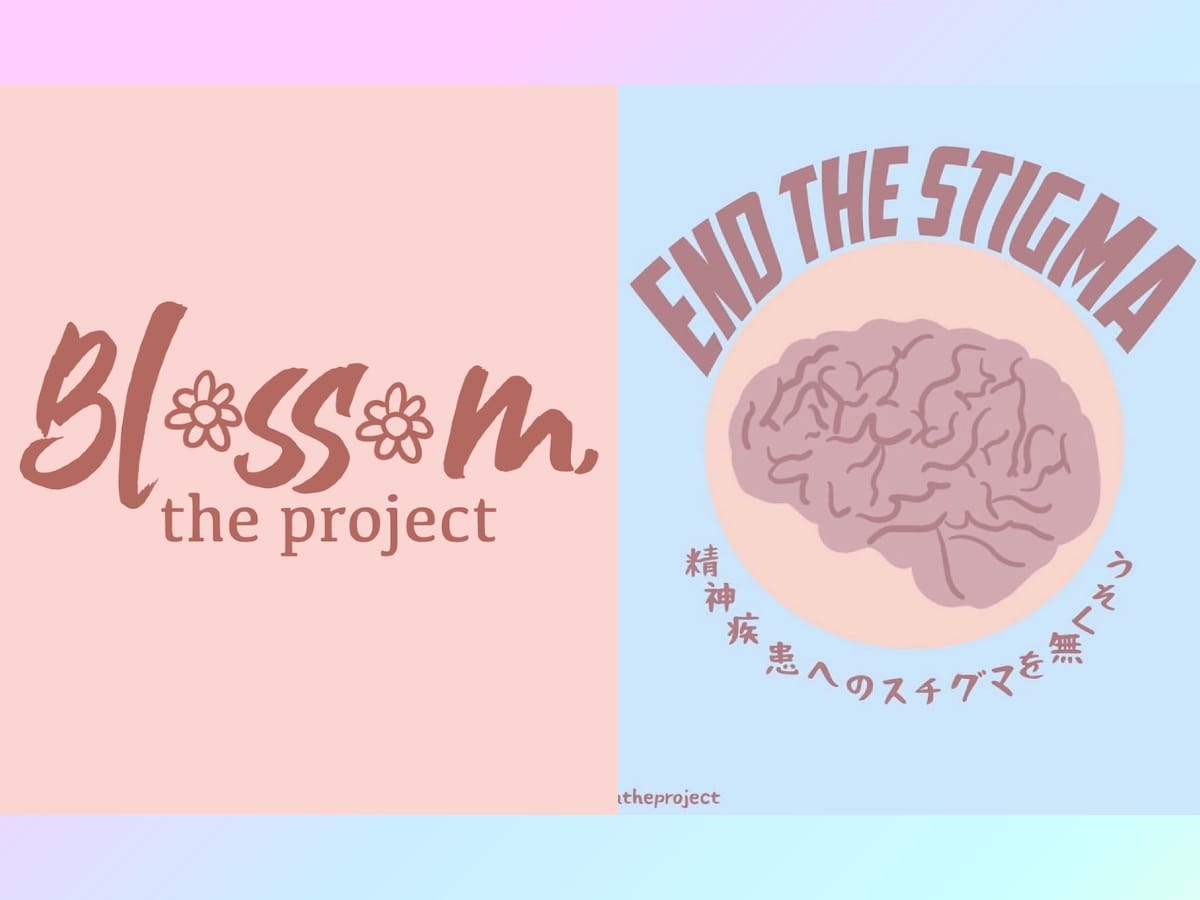
Source: Blossom, the Project - image used with permission
Talking to the creator of ‘Blossom the Project’, an online initiative raising awareness of Japan’s social issues
- Tags:
- Awareness / Black lives matter / Blossom the Project / depression / feminism / mental health / Social Issues / stigma / Suicide prevention
Related Article
-

Coffee stand “HIDEAWAY” hopes to promote understanding of mental illness in Japan
-

Use the power of your wishes to help light up Yokohama Marine Tower
-

Chinese Police Apprehend Japanese Free Hugs YouTuber and Give Him Unusual Interrogation
-

‘For Those Who Want to Birth Biracial Children’ Controversial Kimono Advertisement Resurfaces on Japanese Twitter
-

With telework and social distancing mainstream, Japanese residents try to stay mentally healthy
-

Japanese convenience store’s food lineup’s name drives gender role debate online


Trigger warning: This article mentions depression and suicide and may be upsetting for some.
“I think a lot of people [in Japan] look at mental health as an illness, and that if you have a mental illness, you are crazy.”
This is a mindset that Meg, a 21-year old half-Japanese, half-South African student, hopes to change through the power of social media. She single-handedly runs the page for ‘Blossom, the Project’, an online initiative that explains social and mental health issues through bite-sized Instagram posts aimed at a Japanese and English-speaking audience.
In a period when self-isolation has become a necessity, people across the globe have found themselves struggling to adapt to 2020’s new norm. A report by the Japan Times states that sociologists fear that the social disruption of the pandemic could cause more deaths than the virus itself. In Japan alone, the number of suicides rose by 15.4% in August 2020.
This growing concern was what pushed Meg to start Blossom, the Project six months ago. It was at this time that the effects of the coronavirus started becoming a sobering reality for many. “During the start of the pandemic I became more and more aware of the way it was affecting those with mental health issues,” Meg says. “I wanted to create a platform where I could raise awareness about mental health.”
Meg herself is very open when it comes to talking about mental health. She was diagnosed with depression at the age of 17, and describes that period as one of the most difficult times of her life.
“There was so much about my depression that I didn’t understand and I didn’t know where to seek support,” she recalls. “As a result, I wanted to make it a part of my life to raise mental health awareness and speak up about important issues.”
At first glance, it’s easy to be deceived by the pastel-colored illustrations into thinking that the posts on Blossom are easy or light-hearted. However, some of the topics that Meg chooses to cover are anything but. She’s talked about topics like the Black Lives Matter movement in the US, the Philippines’ controversial Anti-Terrorism Act of 2020, and protests happening in Belarus. With each of these topics, she digs down to the core of the issue, breaks down facts and figures, and provides explanations written both in English and Japanese.
“I want people to look at Blossom as a starting point for having important conversations,” Meg says. And upon closer inspection, it becomes evident that her approach is conducive to this goal. Her topics are diverse enough to mean that there’s always a discussion being held, and the bilingual nature of her posts means that these discussions are being held at the same time in Japanese and in English.
This is further reflected by the comments she receives. On a post that talks about racism in the US, one Japanese comment reads: “Thank you for explaining the parts that may not click with Japanese people living in Japan in a simple and easy-to-understand manner. It's easy to explain to friends.” Similarly, there are a number of English comments expressing surprise upon learning about Japan’s issues regarding things like poverty and the LGBTQ+.
Of course, as anyone who’s been around the internet long enough should know, when there’s an online discussion, there’s bound to be some negativity. Meg is well aware of this. “I think any of my posts about feminism always get the most criticism because people think I’m pushing Western values onto Japan even though I use Japanese resources,” she says. “A lot of people also think feminists are just men haters.”
But this does not dishearten Meg. She continues to create and upload posts regularly, with each new post covering a different topic from the last. One reason for her unwavering pace might be the sheer passion she has for the project; she states that she never started it just to gain more followers. “I do this because there are important issues that not enough people know about or pay attention to.”
Another reason could just be that in a world where social issues weigh down on us endlessly, despite the distance between people being wider than it’s ever been, Meg understands that we aren’t entirely incapable of starting change.
“I think a lot of the time, people think that in order to create change you have to be a politician or an activist, but in reality, it starts from something as simple as a conversation,” she says. “Read, learn, speak, and then take action. Take action by doing your part by informing and educating yourself and others. Because that’s how you raise awareness; that’s how you make change.”